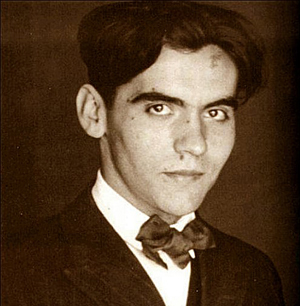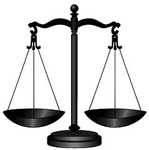Garzon Cleared of Remaining Charges By Spanish Supreme Court | El Supremo considera que Garzón erró, pero no prevaricó, y lo absuelve
Spanish Supreme Court clears Garzon, says he erred but did not overstep jurisdiction
This third* decision of the Supreme Court follows by one week the ex-Judge’s disbarment
By Joseph Yoldi and Julio M. Lazaro
El Pais
English | Spanish
Translated from the Spanish by Dady Chery, Haiti Chery
Madrid, Spain, Feb 27th – By a vote of 6 to 1, today Spain’s Supreme Court acquitted ex-Judge Baltasar Garzon of the charge of overstepping his jurisdiction while trying to open an investigation into Franco-era fascist crimes. The high court said that Garzon had erred in interpreting some facts as being crimes against humanity and from there, had moved on to a series of other mistakes, but these errors do not qualify as overstepping his jurisdiction.
The court’s decision comes one week after the ex-judge’s disbarment from the judiciary for 11 years for a recording made during the Gürtel case.** Thus concludes the final trial that had been pending against the ex-judge of the National Court.
With regard to the conviction for the Gürtel plot, the Supreme Court also filed recommendations for the case by New York University.
The sentence criticizes the approach for assessing the truth. Whereas in Argentina and other countries it is permissible to establish what occurred by conducting research, in Spain it is only possible to do an investigation when there is a natural person to investigate, and in this case it is obvious that all the Franco ministers whom Garzón had named as defendants in the alleged systematic extermination plan launched during the war were already dead. The judgment says historians have their role to play and judges have theirs, but these do not mix.
Regarding the merits of the case, the Supreme Court grants that there was a real inequality between the victims of the two sides because, while some victims were recognized and compensated, others never were, so the court understands that Garzon had acted to try to reddress this inequality.
However, the court finds that the judge erred, because even his own statements about the disappearances force them into the context of crimes against humanity, and this context is taken as his own interpretation of the facts, but the existing legislation cannot declare, as did Garzón, that the crimes were crimes against humanity, which is a much later concept. Although this might appear to be a serious criticism of Garzon, the statement notes that this interpretation could never be accepted due to Spain’s very restrictive concept of the principle of legality.
Regarding the amnesty law, the court held that this is an instrument of reconciliation and not a law of amnesty like those granted in some of the South American dictatorships. The court understands that this law is a current law, and only Parliament can repeal it if it wishes to, but never the judges.
The very elaborate judgment, which was read by speaker Andres Martinez Arrieta, received the unanimous support of Carlos Granados, Andres Perfecto, Miguel Colmenero, Jose Ramon Soriano, Julián Sánchez Melgar, and Arrieta. Jose Manuel Maza formulated a dissenting opinion in which he stated that Garzon should have been convicted. Sánchez Melgar, made a statement concurring with the final judgment.
______________________________________________________________________________
*Another case against Garzon, alleging his corruption, was dismissed by the Supreme Court.
**Garzon plans to appeal his disbarment.
Sources: El Pais (Spanish) | Haiti Chery (English)
El tercer fallo del Supremo llega una semana después de la expulsión de la carrera del exmagistrado
Por José Yoldi y Julio M. Lázaro
El Pais
inglés | español
El Tribunal Supremo ha absuelto al exjuez Baltasar Garzón del delito de prevaricación (dictar a sabiendas resolución injusta), por seis votos a favor y uno en contra, por haber intentado abrir una investigación por los crímenes del franquismo. El alto tribunal considera que Garzón incurrió en un error, como es calificar los hechos como crímenes contra la humanidad y que de ahí cuelgan los demás errores cometidos por el exmagistrado, aunque esos errores no constituyen delito de prevaricación.
La decisión judicial llega una semana después de que el exjuez fuese expulsado de la carrera judicial tras haber sido inhabilitado a 11 años por las escuchas del caso Gürtel. El alto tribunal pone fin así al último proceso que tenía pendiente contra el exjuez de la Audiencia Nacional. Tras la condena por la trama Gürtel, el Supremo también archivó por prescripción la causa por los cobros de la Universidad de Nueva York.
La sentencia critica los juicios de la verdad, porque aunque en Argentina y otros países se pueda realizar una investigación para acreditar lo ocurrido, en España solo es posible realizar una investigación cuando existe una persona física a la que investigar y en este caso es obvio que todos los ministros de Franco que Garzón incluyó como presuntos imputados en el plan sistemático de exterminio puesto en marcha durante la guerra estaban ya muertos. La sentencia estima que los historiadores tienen su papel y que los jueces tienen el suyo y no se pueden mezclar.
Sobre el fondo de la cuestión, el Supremo estima que hubo una objetiva desigualdad entre las víctimas de uno y otro bando, porque si bien unas fueron reconocidas y resarcidas, las otras nunca lo fueron, por lo que se estima que Garzón actuó para tratar de subsanar esa desigualdad.
Sin embargo, el tribunal estima que el juez se equivocó, porque aunque en sus autos habla de desapariciones forzosas en un contexto de crímenes contra la humanidad, toma el contexto como si fuera la propia calificación de los hechos, y con la legislación vigente no se podía declarar, como hizo Garzón, que los crímenes fueran crímenes contra la humanidad que es un concepto muy posterior. Aunque puede parecer que es una grave crítica a Garzón, la sentencia destaca que España tiene un concepto muy restrictivo del principio de legalidad, por lo que esa calificación nunca podía ser aceptada.
Respecto a la ley de Amnistía, el tribunal destaca que fue un instrumento de reconciliación y no una ley de autoamnistía como las que se otorgaban algunos dictadores del cono sur. Entiende el tribunal que es una ley que está vigente y que solo el Parlamento puede derogarla si lo desea, pero nunca los jueces.
La sentencia, muy trabajada, de la que ha sido ponente Andrés Martínez Arrieta, ha contado con los votos favorables de Carlos Granados, Perfecto Andrés, Miguel Colmenero, José Ramón Soriano y Julián Sánchez Melgar, además del propio Arrieta. José Manuel Maza ha formulado un voto particular en el que señala que Garzón debería de haber sido condenado. Sánchez Melgar, por su parte ha realizado un voto concurrente con la sentencia definitiva.
Consulta aquí la sentencia íntegra (PDF).
Fuente: El Pais








Comments
Garzon Cleared of Remaining Charges By Spanish Supreme Court | El Supremo considera que Garzón erró, pero no prevaricó, y lo absuelve — No Comments